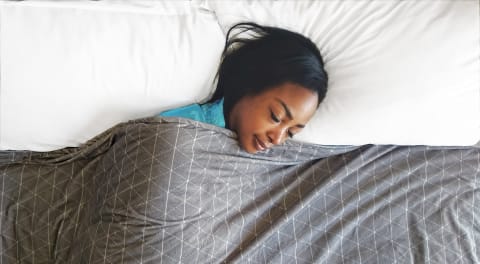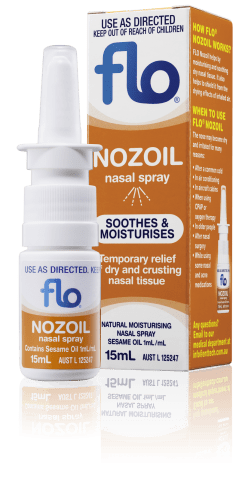Does Medicare Cover CPAP machines in australia
Medicare Cover CPAP Equipment in Australia
Does Medicare cover CPAP equipment in Australia?
This is one of the most common questions we hear from both first-time and experienced CPAP users. The answer isn’t entirely straightforward. In Australia, Medicare does not provide a direct rebate or nationwide subsidy for purchasing CPAP machines or supplies.
Instead, support for CPAP (Continuous Positive Airway Pressure) therapy is delivered through a patchwork of state-based programs and other government schemes, which can vary depending on where you live. This page will walk you through how Medicare and public funding options work for CPAP, what documentation and steps are needed, and practical advice on CPAP trials, compliance, and alternative funding sources.
We’ll also answer frequently asked questions and provide real-world tips – including references to popular CPAP models like the ResMed AirSense 11 – to help you navigate your sleep apnea treatment journey.
Medicare and CPAP Funding: The Basics
In Australia, there is no universal Medicare coverage for CPAP machines or masks. You cannot walk into a store, buy a CPAP device, and get Medicare to reimburse you as you might for medication.
Instead, public hospitals and state health services fill this role for those who qualify. Each state and territory manages its own CPAP support programs through public sleep clinics or respiratory departments, meaning the level of assistance depends on where you live.
Medicare will cover your sleep study (diagnostic test for sleep apnoea) and relevant doctor consultations under the public system, but not the CPAP device itself. If you’re eligible for a state or hospital CPAP program, you might receive a machine on long-term loan at little or no cost – but if you’re not eligible or face long waits, you’ll need to consider private options. We’ll explore those alternatives later, from private health insurance rebates to the National Disability Insurance Scheme (NDIS) and more.
Eligibility for Government-Funded CPAP Programs
Being diagnosed with obstructive sleep apnea (OSA) doesn’t automatically mean you’ll get a free CPAP machine from the government. Publicly funded CPAP support is generally reserved for those with significant clinical need and financial hardship. Typical eligibility criteria in most state-run programs include:
- Documented moderate to severe OSA: Usually proven by a Medicare-eligible sleep study report showing an Apnea-Hypopnea Index (AHI) above a certain threshold (often AHI > 15). In other words, you need a formal diagnosis that your sleep apnea is bad enough to require therapy.
- Referral to a public hospital clinic: You’ll likely need to be under the care of a sleep specialist or respiratory physician in the public health system. This often means getting a referral from your GP to a public sleep clinic or seeing a specialist who practices at a public hospital (not just privately).
- Concession status or financial assessment: Many programs require that you hold a Pensioner Concession Card, Health Care Card, or similar, indicating low income or financial stress. The systems aim to assist those who cannot afford CPAP privately.
- Commitment to follow-ups and compliance: You may need to agree to regular check-ins with the clinic and to use the device as prescribed. We’ll talk more about CPAP compliance below, but it’s basically a way to ensure the machine is benefiting you.
Alternative Funding Sources for CPAP
If you’re not eligible for a fully funded CPAP machine through a public hospital or you simply want a broader choice of equipment, don’t worry. There are several other avenues that can make CPAP more affordable:
- Private Health Insurance (Extras Cover): In Australia, many private health insurers include CPAP machines and accessories under their “Extras” or ancillary cover. Typically, if you have mid to top-tier extras cover, you might get a rebate ranging from a few hundred dollars up to around $1,000 towards a CPAP device.
- Department of Veterans’ Affairs (DVA): If you are a veteran with a DVA Gold Card (which covers all health conditions) or a White Card that includes sleep apnoea, you are likely eligible for fully funded CPAP equipment through DVA. DVA’s Rehabilitation Appliances Program provides CPAP machines, masks, and ongoing supplies at no cost to the patient. The process typically involves an application form (usually completed by your doctor or a specialist) and submitting it to DVA or an authorised DVA equipment supplier.
- National Disability Insurance Scheme (NDIS): The NDIS funds supports for Australians under 65 with significant disabilities. Sleep apnoea by itself is usually considered a medical condition rather than a disability, so not everyone with OSA will be on NDIS. However, if you do have an NDIS plan (for example, you have another condition or disability and OSA is a related issue), you may use part of your plan funding to cover CPAP equipment and support as a disability-related health support. Talk to your NDIS planner or support coordinator about adding CPAP funding to your plan.
- Other Options – Payment Plans and Rentals: Many CPAP suppliers understand that cost can be a barrier for some patients. At Sove CPAP Clinic, for instance, we offer flexible payment plans and rentals to spread out the expense. You could also rent a CPAP machine on a weekly or monthly basis, which is a good short-term solution or even a long-term try-before-you-buy strategy. This can be a lifesaver if you’re not eligible for other funding and can’t afford upfront costs.
ALWAYS FOLLOW THE DIRECTIONS FOR USE. CPAP is used for Obstructive Sleep Apnoea treatment. When considering whether a sleep study or CPAP is right for you, speak to your doctor. Medicare criteria and T&Cs apply.
Payment plans available for approved applicants only; fees, terms, conditions, minimum amounts and exclusions apply.
Frequently Asked Questions (FAQs)
How do I apply for Medicare coverage or funding for a CPAP machine?
Technically, you can’t “apply to Medicare” for a CPAP machine reimbursement because Medicare doesn’t cover the device directly. Instead, you apply to programs that provide CPAP through public funding. The first step is to get a confirmed diagnosis of obstructive sleep apnoea via a Medicare-funded sleep study and obtain a prescription or letter of necessity from your doctor. Then, depending on your state, you apply through your local public hospital or health service for their CPAP supply program. Your GP or specialist can guide you through any paperwork. If you’re a veteran, the application is through DVA. If your regular specialist is purely private, you might need to see a public hospital specialist or have your GP coordinate with the hospital to get you into a program. Sove CPAP Clinic can assist you with these steps and help you get the right support.
What documentation or prescriptions are required?
To access any funding or coverage for CPAP, you’ll need a sleep study report confirming your diagnosis (e.g. moderate or severe OSA with AHI values), a doctor’s prescription or recommendation, a referral to a public hospital clinic (if relevant), proof of concession card eligibility (if required), and sometimes a compliance report showing you’ve used CPAP effectively during a trial. Keep copies of all these documents — you’ll use them for insurance claims and any future equipment upgrades. Sove CPAP Clinic can help you assemble everything you need.
Does Medicare cover CPAP therapy trials before full approval?
Medicare doesn’t provide machines on a trial basis, but many public clinics offer CPAP trials as part of their evaluation process. You might be loaned a CPAP for a few weeks to demonstrate that you can use it and that it helps your symptoms. In some regions, you might need to rent a CPAP privately and provide usage data. Sove CPAP Clinic offers no-obligation trial periods, so you can start therapy quickly while waiting for funding approval.
What should I do if my doctor is not enrolled in Medicare?
Most doctors in Australia are Medicare-enrolled, but if your specialist works only privately, you might still be able to access public funding. Your GP can refer you to a public sleep clinic, or you can ask your specialist for your results and share them with your GP. Sove CPAP Clinic can help guide you through this process and ensure you get the support you need.
How often does Medicare cover CPAP supplies?
Generally, Medicare doesn’t cover ongoing CPAP supplies like masks, tubing, and filters. Some public hospitals might replace parts annually or when needed, but most patients buy their own consumables or claim them on private health insurance if eligible. DVA covers supplies for veterans on a regular schedule. Sove CPAP Clinic offers competitive pricing and bundle deals to make supplies more affordable.
How often do you have to wear CPAP for insurance?
To meet insurance or program requirements, you generally need to use CPAP for at least 4 hours per night on 70% of nights. This is the standard used by many health services to prove compliance and ensure therapy is effective. Your CPAP machine tracks your usage data so you and your providers can see your progress. Sove CPAP Clinic helps patients meet compliance goals and offers support if you’re struggling.








